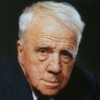Love gives no warning and no quarter; it is sneaky and cruel; if we weren’t so lonely, we’d never put up with it.
Mignon McLaughlin (1913-1983) American journalist and author
The Second Neurotic’s Notebook, ch. 5 (1966)
(Source)
Quotations about:
surprise
Note not all quotations have been tagged, so Search may find additional quotes on this topic.
The surprising surprises once; but the admirable is admired more and more.
[Ce qui étonne, étonne une fois; mais ce qui est admirable est de plus en plus admiré.]
Joseph Joubert (1754-1824) French moralist, philosopher, essayist, poet
Pensées [Thoughts], ch. 23 “Des Qualités de l’Écrivain [Of the Qualities of Writers]” ¶ 164 (1850 ed.) [tr. Lyttelton (1899), ch. 22, ¶ 77]
(Source)
(Source (French)). Alternate translations:What astonishes astonishes once, but what is admirable is more and more admired.
[tr. Calvert (1866), ch. 15]That which astonishes, astonishes once; but whatever is admirable becomes more and more admired.
[tr. Attwell (1896), ¶ 370]The surprising astonishes once; but the admirable is admired more and more.
[tr. Collins (1928), ch. 22]
Life is much more manageable when thought of as a scavenger hunt as opposed to a surprise party.
Jimmy Buffett (1946-2023) American musician and singer-songwriter [James William Buffett]
A Pirate Looks at Fifty, Sec. 11 “The Islands” (1998)
(Source)
People say that age creeps up on them quicker than they expected. First of all, who forced them to think that way? Does age creep up on adults more quickly than maturity creeps up on children? And again, would their age lie less heavily upon them if they were in their eight hundredth year rather than their eightieth? It doesn’t matter how much time has passed; a foolish old man can never be consoled or comforted.
[Obrepere aiunt eam citius, quam putassent. Primum quis coegit eos falsum putare? Qui enim citius adulescentiae senectus quam pueritiae adulescentia obrepit? Deinde qui minus gravis esset eis senectus, si octingentesimum annum agerent quam si octogesimum? Praeterita enim aetas quamvis longa cum effluxisset, nulla consolatio permulcere posset stultam senectutem.]Marcus Tullius Cicero (106-43 BC) Roman orator, statesman, philosopher
De Senectute [Cato Maior; On Old Age], ch. 2 / sec. 4 (2.4) [Cato] (44 BC) [tr. Cobbold (2012)]
(Source)
(Source (Latin)). Alternate translations:All the folis seyn that olde age comyth in them sonner thenne they wend, but I demaunde a question of such men what maner foly constreyned them forto trowe or suppose the thyng the which is fals, for they can sey no reason how olde age entrith sonner in the man aftir adolescence no more than doeth adolescence aftir puerice callid chidlhode which is the seconde age, how be it that it is so ordeyned by nature that that one of the ages entrith aftir the ende of the othir. More ovir I demaunde such foolys how olde age shuld be lesse chargyng & lesse grevous to men if they myght lyve viii C yere, for how be it that the age past had be longer yit it may neithir comforte ne allege ne satisfye the foole olde man.
[tr. Worcester/Worcester/Scrope (1481)]They say [old age] creepeth and stealeth upon them faster and sooner than they thought it would. First, who causeth them to imagine and think such a false and peevish untruth? for why should they think that after their youth and adolescency, old age creepeth faster upon them, rather than their adolescency and youth doth after childhood? Seeing therefore they do not repine nor complain any whit after that they have been children to grow up to be tall striplings and lusty young men, why should they be aggrieved or think themselves discontented, after they have been striplings and young men, to be old and aged? Again, if they might reach ot the age of eight hundreth years, what greater pleasure and commodity is therein, or wherein should they think it to be less troublesome and tedious than it is when they be of the age of four-score years? for the age that is once passed and gone, be it never so long, can with no manner of pleasure or delectation comfort, recreate nor mitigate the old age that is in such fond persons.
[tr. Newton (1569)]They say that [age] creepeth upon them ere they are aware. First let me aske, who bade them over reckon themselves? for how much sooner doth age creep on youth, then youth on child-hood? then, how much more grievous would their age be to them, if they should as well live to the eight hundred year, as to the eighty year? for the former age (though long,) when it is past, can asswage a foolish old age, with no comfort.
[tr. Austin (1648)][They are] always complaining that [Old Age] stole upon them unawares. But pray whose fault is it, that they were so surprized by a wrong computation? Why may they not with equal reason exclaim, that their Youth came too quick upon their Childhood, as that Old Age stole upon their Youth? Or what reason have they to expect Old Age to be less burthensome at eight hundred, than at eighty? For the time they have passed, of what length soever it be, will administer no comfort to Old Age, if foolishly squandered away.
[tr. Hemming (1716)]They charge Old Age with stealing on them faster than it was expected. Who constrain'd them to think wrongfully? Does not Age gain sooner on Youth, than Youth does on Childhood? Besides, How much easier would Old Age fit upon them, where they in their eight-hundredth Year, than in their eightieth? Because the Effluction of Time thro' several Æras,, can give no Comfort to us in these Years of Dotage.
[tr. J. D. (1744)]But, oh! they say, [Old Age] has crept on us too fast, and overtaken us sooner than we thought or expected. In the first Place, pray who put them on thinking wrong? How can they say, Old Age creeps faster on Manhood, than Manhood succeeded Youth and Childhood? Or how would it sit lighter at the Age of Eight Hundred Years, if that were the Term of it, than at Eighty? For the longer Duration of the preceding Age, when once 'tis past, abates Nothing from the Effects of Old Age, when come; nor affords any Relief against the Follies and Weakness of such as sink under it.
[tr. Logan (1744)]It is usual with men at this season of life to complain that old age has stolen upon them by surprise, and much sooner than they expected. But if they were deceived by their own false calculations, must not the blame rest wholly on themselves? For, in the first place, old age surely does not gain by swifter and more imperceptible steps on manhood, than manhood advances on youth ; and in the next, in what respect would age have sitten less heavily upon them, had its progress been much slower, and, instead of making his visit at fourscore years, it had not reached them till four hundred? For the years that are elapsed, how numerous soever they may have been, can by no means console a weak and frivolous mind under the usual consequences of long life.
[tr. Melmoth (1773)]They say that [old age] steals upon them sooner than they had supposed. First, who compelled them to make a truthless supposition? For, what? Does old age steal upon adolescence sooner than adolescence upon boyhood? Then, how would old age be less onerous to them, if they were passing their eight-hundredth year than their eightieth? For the past life, however long, when it had run out, could sooth a foolish old age with no consolation.
[Cornish Bros. ed. (1847)]They say that [old age] steals over them more quickly than they had supposed. Now, first of all, who compelled them to form a false estimate of its progress? for how does old age more quickly steal upon youth, than youth upon boyhood? Then, again, how would old age be less burdensome to them, if they were in their 800th year than in their 80th? for the past time, however long, when it had flowed away, would not be able to soothe with any consolation an old age of folly.
[tr. Edmonds (1874)]They say that age creeps upon them faster than they had thought possible. In the first place, who forced them to make this false estimate? In the next place, how could old age be less burdensome to them if it came on their eight-hundredth year than it is in their eightieth? For the time past, however long, when it had elapsed, could furnish no comfort to soothe a foolish old age.
[tr. Peabody (1884)]They say that [old age] is stealing upon them faster than they expected. In the first place, who compelled them to hug an illusion? For in what respect did old age steal upon manhood faster than manhood upon childhood? In the next place, in what way would old age have been less disagreeable to them if they were in their eight-hundredth year than in their eightieth? For their past, however long, when once it was past, would have no consolation for a stupid old age.
[tr. Shuckburgh (1895)]They say that it has come with quicker step
Than they expected: pray, who was it then
Forced them to this illusion?
Did old age Come quicker upon youth, than youth itself
On childhood? Had it seemed a lighter load
If they had reached not to their eightieth year
But e'en to ten times that? For sure past years
Howe'er prolonged could ne'er endow with charm
A stupid old age.
[tr. Allison (1916)]They say that [old age] stole upon them faster than they had expected. In the first place, who has forced them to form a mistaken judgement? For how much more rapidly does old age steal upon youth than youth upon childhood? And again, how much less burdensome would old age be to them if they were in their eight hundredth rather than in their eightieth year? In fact, no lapse of time, however long, once it had slipped away, could solace or soothe a foolish old age.
[tr. Falconer (1923)]Old age, they protest, crept up on them more rapidly than they had expected. But, to begin with, who was to blame for their mistaken forecast? For age does not steal upon adults any faster than adulthood steals upon children. Besides, if they were approaching eight hundred instead of eight, they would complain of the burden just as loudly! If old people are stupid enough, then nothing can console them for the time that has gone by, however great its length.
[tr. Grant (1960, 1971 ed.)]They complain that [old age] crept up on them faster than they had thought it would. To begin with, who compelled them to accept something that is patently untrue? How does old age “creep up on” adulthood any faster than adulthood does on childhood? In the second place, how would old age be less burdensome to these people if it were to come at age eight hundred instead of at age eighty? No matter how many years of life might have gone by, there could be no effective word of comfort for the old, if they were foolish and thoughtless.
[tr. Copley (1967)]They also say old age creeps up on us more quickly than we thought it would. But tell me, just how does old age creep up on middle age any more quickly than middle age creeps up on youth? The length of time before the onset of old age is not the issue here. To those who think it is, a life in their 800th year would be just as bothersome as one in their 80th. No matter how long the past lasts, once it has gone, it is gone, and a past that has no other virtue than its length will offer no consolation for old age.
[tr. Gerberding (2014)]Faster than they thought, they say,
Senility worms its way
Into them but who obliged them to
Hold such an imaginary view?
But how much faster in truth
Does old age encroach on youth
Than youth itself upon infancy?
And again how overbearing would old age be
Were one eight hundred years old rather than eighty?
Indeed no past life could, as a rule,
Soothe and cheer the old age of a fool.
[tr. Bozzi (2015)]They say that old age crept up on them much faster than they expected. But, first of all, who is to blame for such poor judgment? Does old age steal upon youth any faster than youth does on childhood? Would growing old really be less of a burden to them if they were approaching eight hundred rather than eighty? If old people are foolish, nothing can console them for time slipping away, no matter how long they live.
[tr. Freeman (2016)]They say that [old age] came upon them faster than they had expected. Who forced them to this false belief? For, who would claim that old age succeeded adolescence any faster than adolescence succeeded childhood? Would old age seem any less a burden to them if they were living their eight-hundredth year instead of their eightieth? Once an age has passed and flown away, no consolation is able to soften the blow of a feeble-minded senescence.
[tr. Robinson / @sentantiq (2017)]
There is no sweeter pleasure than to surprise a man by giving him more than he expected.
[Il n’est pas de plaisir plus doux que de surprendre un homme en lui donnant plus qu’il n’espère.]
Charles Baudelaire (1821-1867) French poet, essayist, art critic
Le Spleen de Paris (Petits Poèmes en Prose), No. 28 “The Counterfeit Money [La Fausse Monnaie]” (1869) [tr. Shipley (1919)]
(Source)
(Source (French)). Alternate translations:There is no sweeter pleasure than to surprise a man by giving him more than he expects.
[tr. Varèse (1970)]There is no sweeter pleasure than surprising a man by giving him more than he hopes for.
[tr. Kaplan (1989)]
Unexpected money is a delight. The same sum is a bitterness when you expected more.
Mark Twain (1835-1910) American writer [pseud. of Samuel Clemens]
Letter to Orion Clemens (23 Mar 1878)
(Source)
Life is so constructed, that the event does not, cannot, will not, meet the expectation.
Charlotte Brontë (1816-1855) British novelist [pseud. Currer Bell]
Villette, ch. 36 “The Apple of Discord” (1853)
(Source)
Tho’ Justice, ere she come, be late,
Conceal’d by the behests of fate,
She menaces each villain’s head
For whom th’ inevitable snare is spread.[Δίκα τοι Δίκα χρόνιος ἀλλ᾽ὅµως
ἐπιπεσοῦσ᾽ἔλαθεν ἔλαβεν ὅταν ἴ[δ]ῃ
τιν᾽ἀσεβῆ βροτῶν.]Euripides (485?-406? BC) Greek tragic dramatist
Antiope [Αντιοπη], frag. 223 (Kannicht) [Chorus/ΧΟΡΟΣ] (c. 410 BC) [tr. Wodhall (1809)]
(Source)
(Source (Greek)). TGF frag. 224, Barnes frag. 31, Musgrave frag. 2. Alternate translation:Dike, Dike dallies, but still takes and seizes
unawares when she sees him,
any impious mortals.
[tr. Will (2015)]
If the mind is to emerge unscathed from this relentless struggle with the unforeseen, two qualities are indispensable: first, an intellect that, even in the darkest hour, retains some glimmerings of the inner light which leads to truth; and second, the courage to follow this faint light wherever it may lead.
[So sind ihm zwei Eigenschaften unentbehrlich: einmal ein Verstand, der auch in dieser gesteigerten Dunkelheit nicht ohne einige Spuren des inneren Lichts ist, die ihn zur Wahrheit führen, und dann Mut, diesem schwachen Lichte zu folgen.]
Karl von Clausewitz (1780-1831) Prussian soldier, historian, military theorist
On War [Vom Kriege], Book 1, ch. 3 “On Military Genius [Der Kriegerische Genius]” (1.3) (1832) [tr. Howard & Paret (1976)]
(Source)
(Source (German)). Alternate translations:Now, if it is to get safely through this perpetual conflict with the unexpected, two qualities are indispensable: in the first place an understanding which, even in the midst of this intense obscurity, is not without some traces of inner light, which lead to the truth, and then the courage to follow this faint light.
[tr. Graham (1873)]Now if it is to get safely through this continual conflict with the unexpected, two qualities are indispensable: in the first place, an intellect which even in the midst of this intensified obscurity is not without some traces of inner light which lead to the truth, and next, courage to follow this faint light.
[tr. Jolles (1943)]
Surprise becomes effective when we suddenly face the enemy at one point with far more troops than he expected. This type of numerical superiority is quite distinct from numerical superiority in general: it is the most powerful medium in the art of war.
[Die Überraschung zeigt sich dadurch wirksam, dass man dem Feinde auf einem Punkt viel mehr Truppen entgegen stellt, als er erwartete. Diese Überlegenheit der Zahl ist von der allgemeinen sehr verschieden, sie ist das wichtigste Agens der Kriegskunst.]
Karl von Clausewitz (1780-1831) Prussian soldier, historian, military theorist
On War [Vom Kriege], Book 6, ch. 2 “The Relations of the Offensive and Defensive to Each Other in Tactics [Wie verhalten sich Angriff und Verteidigung in der Taktik zueinander]” (6.2) (1832) [tr. Howard & Paret (1976)]
(Source)
(Source(German)). Alternate translations:The surprise produces an effect by opposing to the enemy a great many more troops than he expected at some particular point. The superiority in numbers in this case is very different to a general superiority of numbers; it is the most powerful agent in the art of war.
[tr. Graham (1873)]The suprise produces an effect by opposing to the enemy at some particular point a great many more troops than he expected. The superiority in numbres in this case is very different from the general superiority of numbers; it is the most powerful agent in the art of war.
[tr. Jolles (1943)]
Here’s a comforting thought for you, Peter. However long you may live, the world will never lose its ability to surprise you with its beauty.
It is a mark of genius not to astonish but to be astonished.
Aubrey Menen (1912-1989) British writer, novelist, satirist, theatre critic
The Prevalence of Witches, ch. 4 (1947)
(Source)
Unexpected intrusions of beauty. This is what life is.
May your coming year be filled with magic and dreams and good madness. I hope you read some fine books and kiss someone who thinks you’re wonderful, and don’t forget to make some art — write or draw or build or sing or live as only you can. And I hope, somewhere in the next year, you surprise yourself.
Neil Gaiman (b. 1960) British author, screenwriter, fabulist
Blog entry (2001-12-31), “As I Was Saying”
(Source)
We begin to notice, besides our particular sinful acts, our sinfulness; begin to be alarmed not only about what we do, but about what we are. This may sound rather difficult, so I will try to make it clear from my own case. When I come to my evening prayers and try to reckon up the sins of the day, nine times out of ten the most obvious one is some sin against charity; I have sulked or snapped or sneered or snubbed or stormed. And the excuse that immediately springs to my mind is that the provocation was so sudden and unexpected; I was caught off my guard, I had not time to collect myself.
Now that may be an extenuating circumstance as regards those particular acts: they would obviously be worse if they had been deliberate and premeditated. On the other hand, surely what a man does when he is taken off his guard is the best evidence for what sort of a man he is? Surely what pops out before the man has time to put on a disguise is the truth? If there are rats in a cellar you are most likely to see them if you go in very suddenly. But the suddenness does not create the rats: it only prevents them from hiding. In the same way the suddenness of the provocation does not make me an ill-tempered man; it only shows me what an ill-tempered man I am. The rats are always there in the cellar, but if you go in shouting and noisily they will have taken cover before you switch on the light.
C. S. Lewis (1898-1963) English writer, literary scholar, lay theologian [Clive Staples Lewis]
Mere Christianity, “Let’s Pretend” (1952)
(Source)
The Day of the Lord will come like a thief, and then with a roar the sky will vanish, the elements will catch fire and fall apart, the earth and all that it contains will be burnt up.
Since everything is coming to an end like this, you should be living holy and saintly lives while you wait and long for the Day of God to come, when the sky will dissolve in flames and the elements melt in the heat.The Bible (The New Testament) (AD 1st - 2nd C) Christian sacred scripture
2 Peter 3:10-12 [JB (1966)]
(Source)
Alternate translations:But the day of the Lord will come as a thief in the night; in the which the heavens shall pass away with a great noise, and the elements shall melt with fervent heat, the earth also and the works that are therein shall be burned up.
Seeing then that all these things shall be dissolved, what manner of persons ought ye to be in all holy conversation and godliness, looking for and hasting unto the coming of the day of God, wherein the heavens being on fire shall be dissolved, and the elements shall melt with fervent heat?
[KJV (1611)]But the Day of the Lord will come like a thief. On that Day the heavens will disappear with a shrill noise, the heavenly bodies will burn up and be destroyed, and the earth with everything in it will vanish.
Since all these things will be destroyed in this way, what kind of people should you be? Your lives should be holy and dedicated to God, as you wait for the Day of God and do your best to make it come soon -- the Day when the heavens will burn up and be destroyed, and the heavenly bodies will be melted by the heat.
[GNT (1976)]The Day of the Lord will come like a thief, and then with a roar the sky will vanish, the elements will catch fire and melt away, the earth and all that it contains will be burned up.
Since everything is coming to an end like this, what holy and saintly lives you should be living while you wait for the Day of God to come, and try to hasten its coming: on that Day the sky will dissolve in flames and the elements melt in the heat.
[NJB (1985)]But the day of the Lord will come like a thief. On that day the heavens will pass away with a dreadful noise, the elements will be consumed by fire, and the earth and all the works done on it will be exposed.
Since everything will be destroyed in this way, what sort of people ought you to be? You must live holy and godly lives, waiting for and hastening the coming day of God. Because of that day, the heavens will be destroyed by fire and the elements will melt away in the flames.
[CEB (2011)]But the day of the Lord will come like a thief. The heavens will disappear with a roar; the elements will be destroyed by fire, and the earth and everything done in it will be laid bare.
Since everything will be destroyed in this way, what kind of people ought you to be? You ought to live holy and godly lives as you look forward to the day of God and speed its coming. That day will bring about the destruction of the heavens by fire, and the elements will melt in the heat.
[NIV (2011 ed.)]But the day of the Lord will come like a thief, and then the heavens will pass away with a loud noise, and the elements will be destroyed with fire, and the earth and everything that is done on it will be disclosed.
Since all these things are to be destroyed in this way, what sort of persons ought you to be in leading lives of holiness and godliness, waiting for and hastening the coming of the day of God, because of which the heavens will be set ablaze and destroyed and the elements will melt with fire?
[NRSV (2011 ed.)]
No one is so brave that he is not disturbed by something unexpected.
[Nemo est tam fortis, quin rei novitate perturbetur.]
Julius Caesar (100-44 BC) Roman general and statesman [Gaius Julius Caesar]
The Gallic Wars [De Bello Gallico], Book 6, ch. 39 (49 BC)
(Source)
Alt. trans.: "No one is so courageous as not to be disconcerted by the suddenness of the affair." [tr. McDevitte and Bohn]
Old age is the most unexpected of all things that happen to a man.
Leon Trotsky (1879-1940) Russian politician, Marxist, intellectual, revolutionary [b. Lev Davidovich Bronstein]
Diary, Notebook 2 (1935-05-08) [tr. Zarudnaya (1958)]
(Source)
Many folk like to know beforehand what is to be set on the table; but those who have laboured to prepare the feast like to keep their secret; for wonder makes the words of praise louder.
J.R.R. Tolkien (1892-1973) English writer, fabulist, philologist, academic [John Ronald Reuel Tolkien]
The Lord of the Rings, Vol. 3: The Return of the King, Book 6, ch. 4 “The Steward and the King” [Gandalf] (1955)
(Source)
Surprises are foolish things. The pleasure is not enhanced, and the inconvenience is often considerable.
Crowley thumped the wheel. Everything had been going so well, he’d had it really under his thumb these few centuries. That’s how it goes, you think you’re on top of the world, and suddenly they spring Armageddon on you.
Terry Pratchett (1948-2015) English author
Good Omens, 2. “Eleven Years Ago” (1990) [with Neil Gaiman]
(Source)
No tears in the writer, no tears in the reader. No surprise for the writer, no surprise for the reader.
Robert Frost (1874-1963) American poet
“The Figure a Poem Makes,” Collected Poems, Preface, “The Figure a Poem Makes” (1939)
(Source)
Nothing astonishes men so much as common sense and plain dealing.
Ralph Waldo Emerson (1803-1882) American essayist, lecturer, poet
Essay (1841), “Art,” Essays: First Series, No. 12
(Source)



























